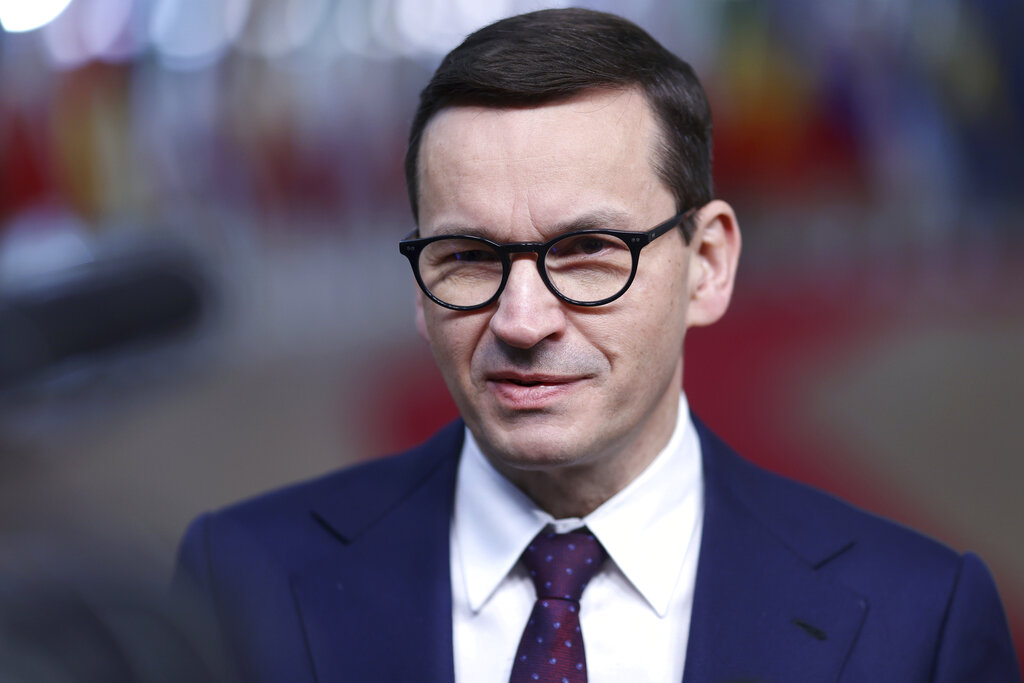Polish Prime Minister Mateusz Morawiecki once again expressed his opposition to the obligatory relocation of migrants enforced by the European Union’s new Pact for Migration and Asylum, this time with a video.
“The Law and Justice government says STOP to the mandatory relocation of illegal immigrants,” posted Morawiecki, as he shared the PiS election video clip addressing the issue of migrant relocation on Twitter.
“When the criminal regime of Vladimir Putin invaded Ukraine in 2022 and killed innocent civilians, Poles and other countries rushed to help our neighbors. We assisted up to 4 million people without any guidelines from the European Union, but out of heartfelt need and a sense of human solidarity,” the video highlights.
“The EU allocated only €200 million for this purpose, which is €50 per person,” the narrator adds. “Yet now, the same Union is attempting to force Poland into accepting immigrants from other continents or foot the bill for their upkeep – €22,000 per person annually,” the video continues.
“But why should we be held accountable for the errors committed by wealthy European Union countries? Solidarity cannot function unilaterally. We will never agree to such terms. We refuse to compromise the safety of Poles due to the egregious mistakes made by a handful of European capitals,” the narrator explains.
[pp id=80717]
Polish authorities have long been warning about the disastrous consequences of the European Union’s immigration policy. The new clip picks up on the same theme, with the narrator stating: “We are committed to protecting our country’s interests and aspire to build genuine solidarity in Europe, rather than coercive solidarity.”
Last week, EU interior ministers reached a migration deal described as “historic” by officials that would see EU states pay €20,000 for each migrant they refuse to host. Poland has rejected the deal and demands the issue be considered by the full European Council summit, where decisions have to be taken unanimously.





